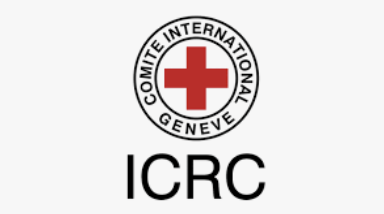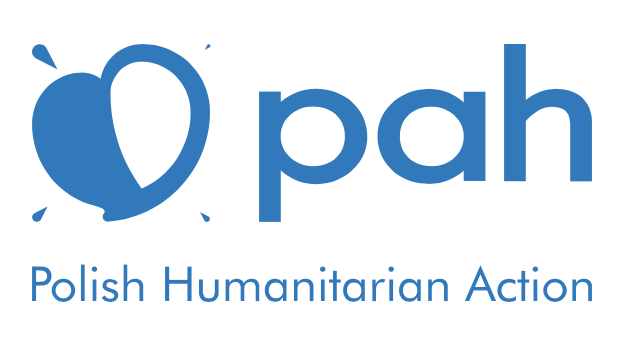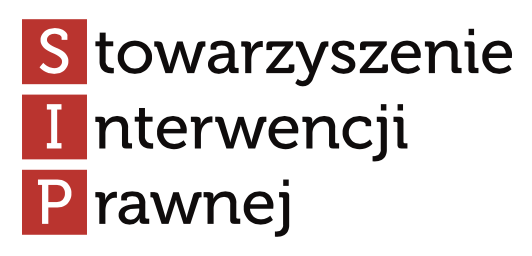Transcript of Bitesize Ep 32 - Transcript
Charlie:
Hello everyone, and welcome to this episode of the British English Podcast. This is going to be an incredibly different episode from the usual type of content that I publish on this podcast. The usual aim is to give you culture based conversations in order to entertain you and help you improve your British English. However, today I thought it would be incredibly important to create an episode where you could hear from the people of Ukraine. So why am I creating this episode? Well, I wanted to do more than just donate to these people in need during this catastrophic time. And after rewriting this intro many different times, I suppose I should start at the beginning to to get us all on the same page. So here's where I'm at and why I wanted to do this episode. So on the 24th of February, 2022 Russian troops began a quote unquote special operation in Ukraine, which we know for a fact is actually an illegal invasion of the country. Since that day, I've spoken to a lot of Ukrainian and Russian friends who are living both abroad, but also in their respective countries at the moment. And I've watched the news in both the UK and Australia, and while this whole experience has honestly depressed me on a day-to-day basis and have shed tears over the extreme violence and the extreme danger that people are facing in Ukraine, I'm actually really shocked as well by how damaging the fake news, misinformation and propaganda that's going around really is. I knew that misinformation has been a problem online for at least the last decade, and there's been major issues between Ukraine and Russia, especially on the border since 2014. However, I've had a few conversations with people and I've kind of also been shocked at the things they've been telling me.
Charlie:
Hearing the differences in these people's genuine beliefs on this topic has really been disappointing because misinformation, much of which is is just blatant propaganda, is clearly absolutely everywhere, not just in Russia. I mean, I've heard from Russians who believe that it's a peaceful takeover and that they are just simply trying to de-nazify Ukraine. But this is absolutely absurd when you actually look into what's been going on. But that being said, I've also witnessed misinformation or brainwashing coming from the West and the way that the news covers what they want to cover in order to be in alignment with the government or simply to get more clicks on these attention seeking mobile devices we have. So what can we do to battle misinformation and propaganda? Well, in my opinion, the best I can do is simply share the experiences of real people's voices here on this show. Remove the propaganda, remove the news reports and editors and governing bodies that control a lot of the news that we hear. So I reached out to Ukrainian followers at random and asked for them to simply tell me about their experiences, their own experiences of what's going on in their life at the moment, in their own words. For obvious reasons, I'm going to keep everyone involved in this podcast anonymous. Unfortunately, I haven't been able to include every single person who reached out to me and was kind enough to share their time, their voices, their stories. But I want you to know that I heard you and this episode was inspired by you. So thank you. And I'll let the people of Ukraine take it from here.
Ukrainian Speaker 1:
So my life has completely changed and it will never be the same again. I'm a simple teacher in the city, which is called the Dnipro. In the morning of the 24th of February, at 6:00 in the morning, we woke up because my husband's sister called. She lives in Kyiv. She called and said that they are- Boryspil Airport is being bombarded right now. The feeling which I felt inside me was only shock. I was stunned. I couldn't say a word. At first, Russian troops were bombarding strategically important spots in our country, such as military units and airports. Sometime later, they started bombarding just simple residential areas in Kiev, Kharkiv, Sumy, Kherson, in part of the Zaporizhzhia, Melitopol and some other parts of my country. Panic started to raise. People didn't know what to do. They just started buying everything that they could in the shops. I mean, food, some personal stuff, stuff for their homes. Like sticks, like candles, like batteries, like lighters. Everything possible that could be necessary in such situation. Some people, of course, started to leave the country, and a lot of them has left. And people who are now in Ukraine, who are staying in their motherland, they are struggling, first of all, struggling with their psychological, terrible, dramatic, dreadful psychological condition that they have right now. A lot of cities are occupied and they don't have enough food. They don't have enough water. They sit in underground shelters. A lot of people are dying in these underground shelters because of lack of water, lack of food, because of coldness, because small children don't have enough food for them. Because of missiles, because of weapons. Russian missiles and Russian weapons, of course, small children are dying. And every day we can absorb a huge amount of photos of parents who are holding their small children who are holding their died small children and cannot do anything. Pictures of doctors who are crying next to the bodies of these dying children and people.
Ukrainian Speaker 2:
In the morning of the 24th of February, I woke up to the sounds of an explosion and air raid sirens. A few minutes after that, my brother called me on my phone saying that the war has started. Little did we know, what we heard in Kyiv was just a minuscule part of the series of explosions that surged across Ukrainian cities. Long story short, a few days into the war we learnt were all load bearing walls in our apartment were how to quickly get into a bomb shelter and required what essential things one should bring there and how to estimate the proximity of an explosion, etc.. So it is safe to say that our lives have changed yet again. All we took were our backpacks, a couple of t shirts and some paperwork. Being on-the-go again with nothing but our backpacks is quite evocative as it already happened to us back in 2014.
Ukrainian Speaker 3:
While most people I know, like, I mean, my family, my husband's family, my friends, they are currently in Odesa where it's not too bad. It's my hometown and lots of people, especially with little kids, they left right away, basically on the first morning when the war had started, just because they woke up to the missiles flying over their house. So they just collected their clothes in 20 minutes they- they left country. I mean, they left their home, then they left country. And yeah so they out of Ukraine and for the rest, like I said, it's not too bad in my city at the moment. And the city is preparing for a big attack because it's a pretty big city. It's a big port of Ukraine, probably the biggest one. And strategically, it's a very important city to be occupied. So they expected Russia to be there and Russian troops, Russian ships were trying to approach. But apparently because of the bad weather, they got back closer to Crimea. I don't know exactly. I'm not there, so I can't tell you anything. And there are plenty of fake videos where you can kind of see plenty of ships in a sea from the shore of Odesa, which is not confirmed by my friends and relatives who some of them they they live they live not too far from our beach. So basically a friend of mine, he starts his day waking up and going to the beach and sea to see what is happening there in the sea. Is there, are there any ships? Yeah, there are plenty of alarms going during the day, every single day. In the beginning, people would be scared. Now they kind of got used to it, so they not really react to them anymore.
Ukrainian Speaker 4:
I'm from Lviv, this is one of the most beautiful cities in the west of Ukraine. Putin lost the first stage of war as not a single Ukrainian city or village, welcomed his tanks and soldiers. We Ukrainians do the best we can addressing Russian women, asking them not to let their husbands and sons come here. But they refused to believe us. Russian speakers from Kharkiv flee to the west of Ukraine. And you know what? We fully support them. They feel grateful and safe because this is their homeland, no matter where you live, in the west or in the east. They are safe, but at the same time, they are devastated. Their homes have been ruined. They were running away, literally without any baggage. They spent days and nights in shelters, in basements. And today, thousands of Ukrainians are still there without gas, electricity, water and their food and medical supplies are coming to its end. A war is actually happening in Ukraine, a cruel unjust violent war where hundreds of civilians and children are killed by people who somehow decided they could invade another country, a peaceful country, a beautiful country, an independent country. They came here to, quote, save us. Save us from what? From living our peaceful life. Or maybe from going out with our friends and spending time with our families. Or maybe from earning money, creating new things, travelling or maybe from sleeping in our beds without listening to explosions and bombing. What is actually happening in Ukraine is that our cities are being destroyed.
Ukrainian Speaker 4:
Our lives are being taken away from us. Our children are being born in dark, cold, wet bomb shelters, and sick people who depend on taking medicines are being left to suffering and slow death. What is actually happening in Ukraine is that we are promised green corridors and then when people are being evacuated, the enemy army starts to shoot at them and then lie that it's us who do not respect the ceasefire.
Ukrainian Speaker 5:
I have to say that it has changed dramatically in spite of the fact that we actually live in a quiet region. So the enemy is is not far and it's frightening. Well, about our region, educational institutions don't work. The shops are almost empty because the factories that produce food, almost all the factories, they don't work. They stopped their work. And now it's more and more difficult to get the things we need in the shops. But for the moment, it's actually it's okay because we compare our life to the life of people who live there near the front and we can't complain. Really, we can't. My sister lives near Kyiv and she says that the circle around Kyiv is less and less every day and they hear explosions every day, all the time. They could leave, but they didn't. My group mate, for example, was near Kyiv as well. She's got two children. They left because in their very region it is very dangerous. And cities and villages are getting occupied. And it's just it's awful.
Ukrainian Speaker 6:
We can't go out and we can go only to the supermarket, I guess. And of course I don't go there, my father goes there because it's unsafe for girls and women to go out. But in other parts of Ukraine, the situation is worse because in Mariupol there is no electricity, no water, and we don't have connection with people there. And in cities around Kyiv, and Bucha, there is no electricity either and there are no houses because Russia just destroyed them. So and people can't go out because Russia told us that they could go out like you know this special corridor. I don't remember how they call it for refugees, but when people tried to escape, a Russian just started fire. So a lot of people died while trying to escape. So yes, Kharkiv is destroyed totally. So people don't have houses. So life is like this.
Ukrainian Speaker 7:
You know, life has divided into two parts. After the 24th of February for me and my family and for all my friends. Right now, I'm not in my native city. We had to move to the neighbouring city where there are no bombings right now because we woke up on the 21st of February in my house with my family because of the bombings and we have to move out because it was really dangerous to stay there. Also, we were hiding in the shelters like a kind of bunkers for the people. And it was really horrifying and difficult because we have a child of- she is six years old and that's why we just took the decision to move to another city. Right now, it's much more safe. And also a lot of my friends, they moved out not only from our city, they moved out from the country. For example, my best friend, she moved to Poland with her son. Her husband stayed there in my neighbouring city. And right now they are the refugees and they have to live the new life there in Poland. Also a lot of friends. I have another friend from Kharkiv. This is the city that is being under bombing right now. And they also moved from there because their neighbourhood was bombed down to the ashes and they have to move to western Ukraine to their aunt and uncle like this. You know, my husband, my mother-in-law, she lives in Russia and she called, she's Ukrainian initially, but she lives in Russia for the last maybe how many, 15 years. So she has been living in Russia for the last 15 years. She is still pro-Ukrainian, but she can't leave Russia really right now to Ukraine. And she tells us every day about the propaganda in Russia, what she can see on the TV and what we can really see there in Ukraine.
Ukrainian Speaker 7:
And for example, there was the moment when in Irpin, this is the city near Kyiv, there was the photo of our people they were hiding under the bridge to survive the bombings and Russian propaganda showed this photo and said that Ukrainian military does not allow Ukrainian people to live there under the bridge because they want to kill them. Actually, this was the photo of just people hiding from the bombings under the bridge and they really convert all our photos into absolutely opposite things. So, for example, like this photo yeah and all the things that happened, for example, these green corridors for the refugees from the bombing of cities, they say that Ukraine does not give us the opportunity to take the people from the places and they do not give us the green corridors we want to but Ukrainian army forces they don't allow us to set people free. But actually no our people, our Ukrainian army forces, they want to set free these people. But the occupants, they bomb the cities all the time. The bombings, they are constant and it's really impossible to bring any medicine, any food, supplies and so on to the areas and to the regions that are under bombings. For example, like from my neighbouring city, this is Zaporizhzhia from 30 kilometres away. There is the city of Vasylivka and it was on the bombing for the last I don't know how many three days already. And it was super difficult to get of medicine and water supplies there because the occupants, they did not allow our volunteers and our army forces to get into the cities and just to feed people and to give them medicine.
Charlie:
All right. So I'm going to leave it there with the voices of Ukraine telling us what they are experiencing right now on the ground in Ukraine. I'd like you to keep in mind, though, that those who responded to me are likely the least affected as they are still able to respond by email and messages without needing to focus on fleeing the country or even worse, fighting. If you're Russian and you're listening to this, then just know that I'm not broadcasting this message to point the finger at you. I know that it's the Russian government, the Kremlin. I know many Russian students who are against this war having many family members in Ukraine. But I do want this to be heard by those who are pro-Kremlin and seem to be deaf to the voices of Ukrainians. And considering that you are listening because you're interested in British English, that probably suggests that you are somebody who has a more global view on politics. And therefore I encourage you to share these kind of messages to those that believe the propaganda about the fact that it's not a war, that violence is not being used against innocent civilians of Ukraine to invade their homes. So I encourage you to not only support Ukrainians, but spread the word, let people know that this is happening. And there's a few other things you can do apart from share this episode as widely as possible. You can donate money to charities such as the Polish Humanitarian Action. This is pah.org providing humanitarian aid, including food and other forms of support to people who had to leave their homes. There's also the Polish Association for Legal Intervention for Refugee Rights.
Charlie:
Another option is to donate to media organisations in Russia that are not controlled by Putin's regime. They can tell Russian citizens the truth about the war and help support the burgeoning protests underway there. Meduza Russian online newspaper and news aggregator and OVD info, a Russian human rights service have both been recommended by effective altruists interested in media freedom in Russia. Another option would be to direct money to groups that are providing medical assistance on the ground in Ukraine, like the French one, Medecins Sans Frontieres, or perhaps in French that would be Medecins Sans Frontieres. Sorry if I butchered that one, or as I have the Ukrainian Red Cross. If you're in a neighbouring country, you could consider hosting some Ukrainians. My parents are thinking about doing that when they go back to the UK. If if you don't like any of those suggestions, just Google donate to Ukraine and I'm sure you'll come across something. Just choose one that you think resonates with you perhaps. And if you're not in a position to be able to donate, then reach out to those that you know, to comfort them, to lend an ear and share their message. They'll feel heard and not alone in this catastrophic moment in time. But there we go. Thanks once again for listening to this episode. We'll come back to the usual type of broadcasting next week. Until then, a phrase that my Ukrainian students have been encouraging me to learn is Slava Ukraini, heroyam slava. Hopefully that pronunciation wasn't too bad. All right, guys, see you in the next one. Much love.















